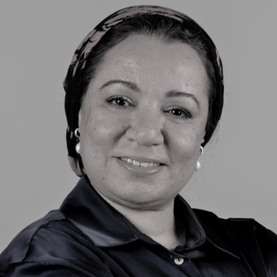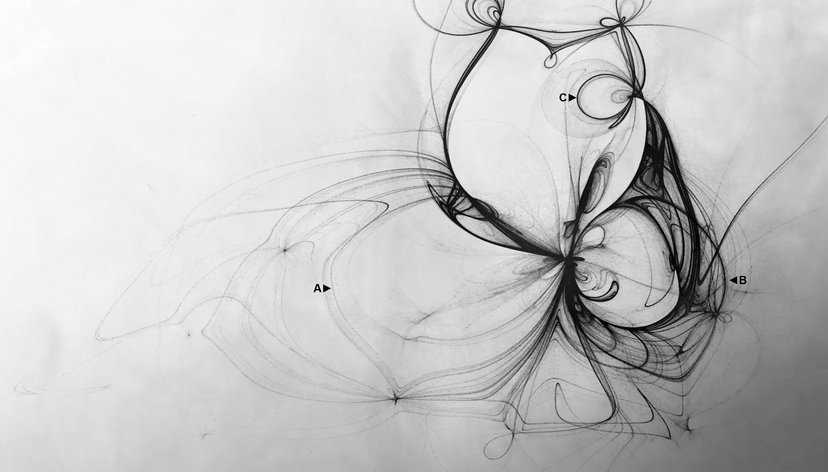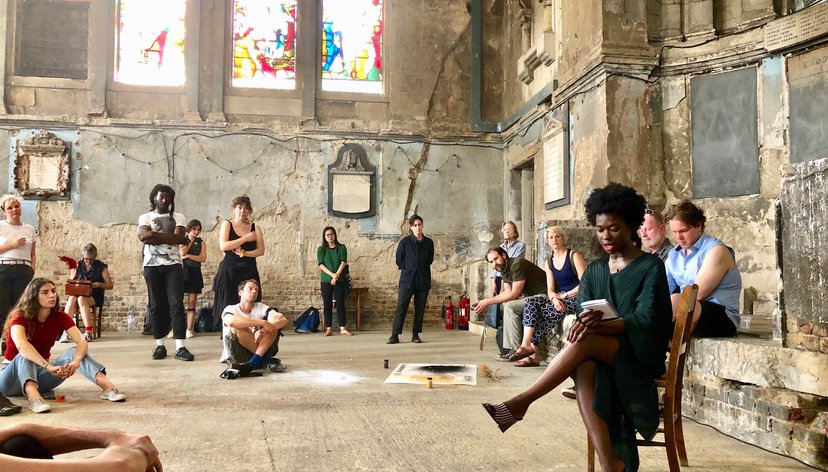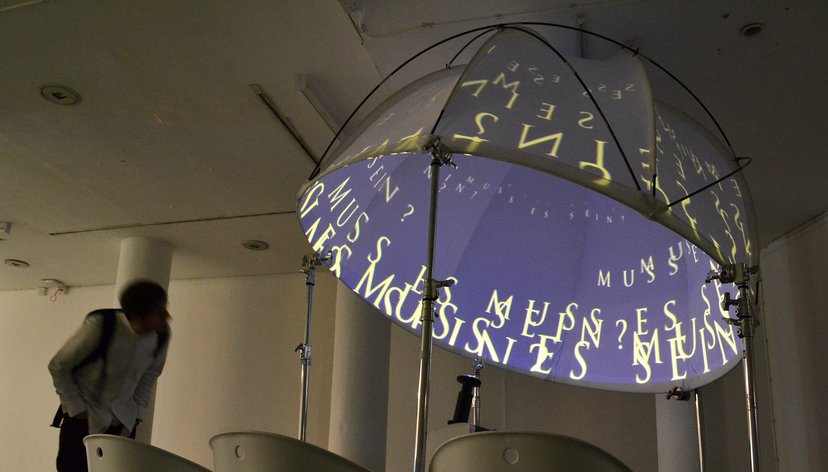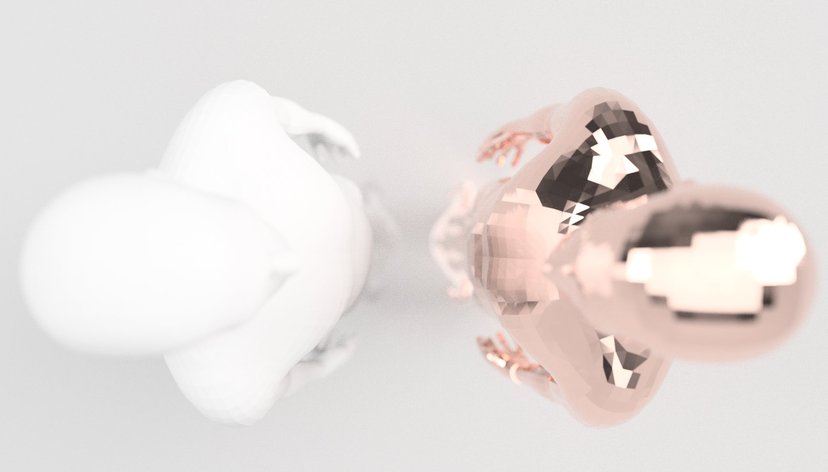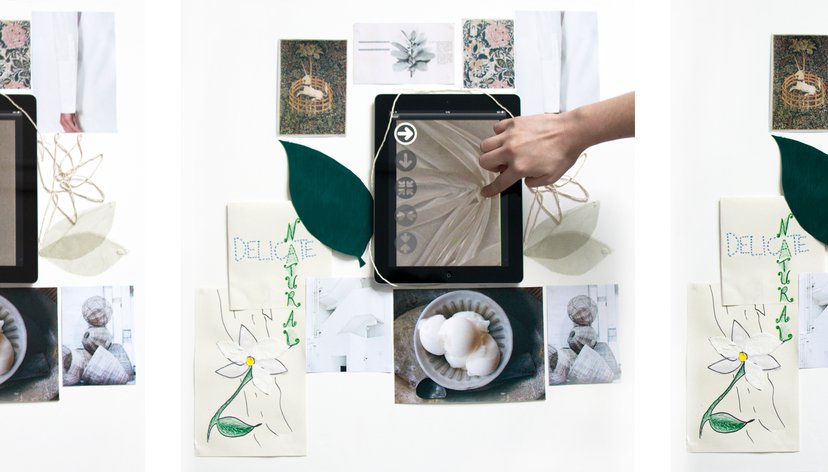Research degrees
Jump to
Join a thriving community of more than 250 MPhil and PhD students pursuing cutting-edge research and take your place at the international forefront of art and design.
Our postgraduate community
We have more than 250 PhD students pursuing cutting-edge research and undertaking advanced training across the College:
- Arts & Humanities MPhil/PhD
- Architecture MPhil/PhD
- Communication MPhil/PhD
- Computer Science MPhil/PhD
- Design MPhil/PhD
- History of Design MPhil/PhD
- Intelligent Mobility MPhil/PhD
- Materials Science MPhil/PhD
- Robotics MPhil/PhD
The Royal College of Art is a world-leading postgraduate university, one of the most research-intensive specialist art and design institutions in the UK. Both our students and staff are drawn from countries across the globe. Overseas students play a vital role in ensuring that our College community benefits from a diversity of experience and skills.
Visit Eligibility and key dates to see details of our application rounds and deadlines.
We recommend applying as soon as possible. Applications are reviewed in the order they are received and places are limited, so this programme will close for new applications when all places are filled.
What is a research degree?
At the RCA we offer both MPhil and PhD research degrees. Research candidates can study in part-time and full-time modes (subject to approval) and their research can be undertaken by project or thesis modes. The mode of research will be discussed in interview, and should be indicated in the application process.
A postgraduate research degree challenges you to complete a research project that pushes the boundaries of our understanding.
Unlike a taught degree, a research degree emphasises independence of learning and increased specialisation. You will manage your own research project in order to investigate your topic in depth and to produce new ideas, arguments and solutions.
A research degree will give you the subject matter expertise and transferable skills necessary for a wide range of senior roles in research and academia, as well as in business, industry and the cultural and creative sectors.
PhD
A PhD is awarded to students who produce a substantial piece of original research that makes a contribution to research in the field. This can take the form of a thesis (60,000-80,000 words) or by project (a body of work and thesis 25,000-40,000 words). If you’re a PhD candidate you’ll normally registered for three years full-time, with submission within four years, or six to seven years part-time. You must remain registered and pay an appropriate fee until submission.
MPhil
An MPhil is awarded for original research and submission of a thesis. If you’re an MPhil candidate you’ll normally be registered for two years (full-time) or four years (part-time).
MRes
We also offer Masters of Research (MRes), a one year, full-time taught degree that provides effective preparation for PhD study, but can also offer vital career development opportunities.
Support and development
A research degree requires independent study. Depending on your project, you will spend much of your time reading, experimenting, designing, analysing, writing, and re-writing.
But you won’t work alone. You will have a supervisory team of expert academics and practitioners who will guide your research. You will also build networks among your fellow researchers, and take part in rigorous skills training and development opportunities to ensure that you have the subject-specific and generic skills required to complete your project and to prosper in your chosen career.
Doctoral training programme
At the RCA, research students undertake training both at a cross-College level and within their Schools/Centres, offering rich and robust preparation and learning opportunities for their research degree progression. Many of these also offer opportunities to build a portfolio of experience for future careers.
All students are required to attend our Doctoral Training Weeks in September, February and July (pro-rata attendance by negotiation for part-time students). These are opportunities to participate in the broader research community at the RCA, but also to undertake timely training to support research progression. These intensive weeks include a range of professional development seminars, training and advice in writing, getting published, achieving impact, entering the academic job market and more, and opportunities for you to develop and present your research to your peers and staff.
Our Research Biennale, held every alternate February, offers a showcase of research to internal and external partners and public. The events include space for testing and experimenting with public facing aspects of research, extending and challenging frameworks and perceptions of what art and design research can be.
We are committed to ensuring that you are well equipped, not only to complete your studies but also to develop your future careers.
Supervisors
All students are allocated supervisors upon registration; your supervisory team will have both subject specialism and experience of supervising to completion. Our list of current staff includes overviews of their research and areas expertise. These give an idea of the key areas of research that are covered at the RCA.
We are not able to guarantee allocation to a specific supervisor as we need to balance staff capacities and our research strategy. However, if there is a particular supervisor whose research aligns with your research proposal, please join us at one of our Open Events and we can talk with you about the possibilities.
Each student will have six supervisions per year (three for part-time students); these might be with the full supervisory team or with one supervisor. Students are expected to initiate these meetings, set the agenda and provide supervisors with pre-reading or other materials in an agreed timeframe for review.
Annual progress reviews and assessment
All research students have Annual Progress Reviews, which they must pass in order to progress into the next year of study. These are vital points where all candidates receive formal feedback not only from their supervisory team, but also from other members of the faculty.
There is a formal Confirmation Exam that takes place midway through the period of study to ascertain your readiness for PhD submission; if you who do not meet the requirements at this stage then you’ll usually be recommended to submit for MPhil examination.
Tuition fee bands
The RCA has two fee bands for MPhil/PhD students in the academic year 2025/26.
Candidates applying to commence doctoral study in autumn 2025 should indicate at the interview which mode (high residency or low residency) they wish to pursue. For more information on the different fee bands, what they entail, and frequently asked questions, visit MPhil/PhD tuition fee bands for 2024.
Students progressing to Postgraduate Research (PhD or MPhil) from MA, MA/MSc, MArch, MFA, MDes, MRes or MEd study at the RCA are entitled to a £1,000 fee reduction per year (£500 per year for part-time study). For Postgraduate Research, if you change from full-time registration to part-time (or vice versa), then the fee reduction will be re-calculated and the maximum discount period will be six years (excluding authorised leave of absence).
Open Events
Our Open Events are a great opportunity to find out more about research at the RCA, meet academic staff and students, and visit our facilities, workshops and studios. To find dates for our next online and on-campus open days visit our Open Events webpage.
MRes RCA
Not quite ready for an MPhil/PhD?
Our one-year Master's of Research programme supports the development of research careers in academia and industry-based research groups. When applying, you choose a specialism, which will be your central discipline. You will be assigned an expert supervisor for closer supervision of an independent research project.
You’ll become more confident and graduate with a clearer sense of the next steps you want to take, whether that’s PhD-level study, professional industry roles, or something else.
Apply
Read out step-by-step guide to the MPhil/PhD application process.
Staff
Ask a question
Get in touch if you have any questions about our postgraduate research programmes.

